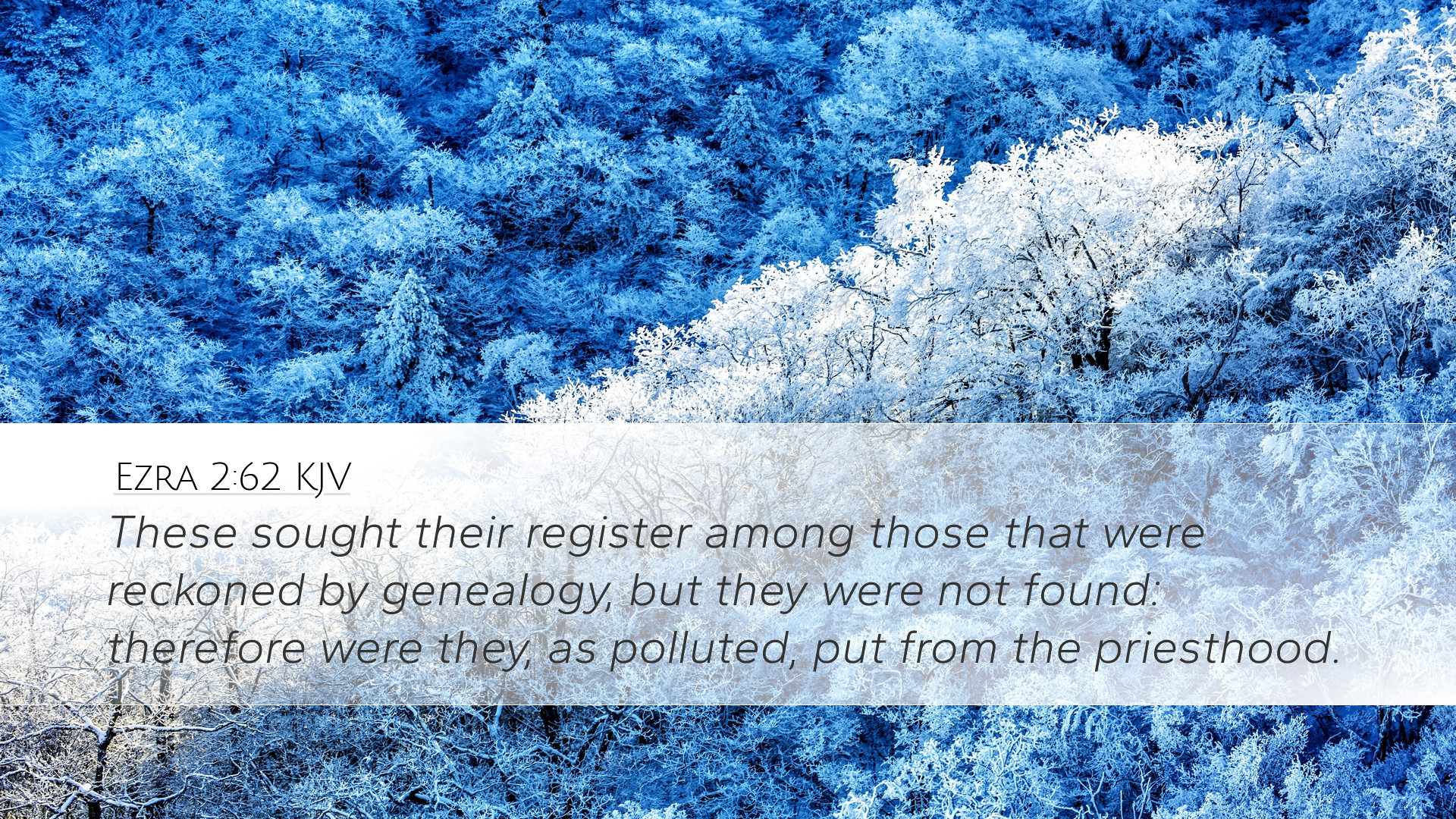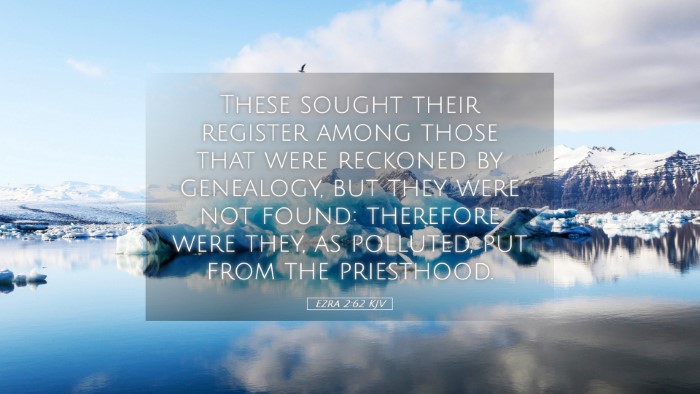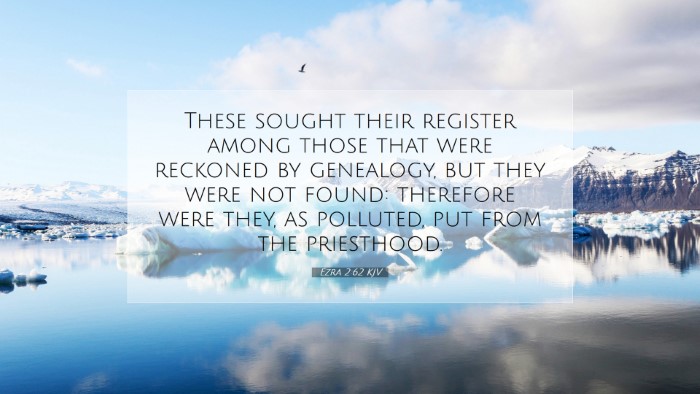Commentary on Ezra 2:62
Ezra 2:62 mentions the descendants of the priests who could not verify their genealogy, which reflects significant themes of identity, priesthood, and restoration in the post-exilic community.
Contextual Background
The return of the exiles from Babylon marked a crucial moment in Jewish history. After decades of captivity, the remnant of Israel, led by leaders like Zerubbabel and Jeshua, sought to restore their nation, worship, and identity. The list of returnees in Ezra 2 serves not only as a census but as a theological statement about God's fidelity to His promises.
Genealogical Significance
Genealogy played a vital role in ancient Israel, especially concerning the priestly lineage. The priests were expected to be distinct in holiness and service before God. Ezra 2:62 underscores these religious qualifications:
- Identity: The returnees are reminded of their heritage, as the legitimacy of their priestly status depended on verifiable ancestry.
- Authority: Only those with authentic genealogy could serve in the critical roles of the temple, affirming systematized worship.
Commentary Insights
Using the insights from Matthew Henry, Albert Barnes, and Adam Clarke, we can deeply explore the theological implications of Ezra 2:62:
Matthew Henry's Perspective
Henry emphasizes the importance of priestly purity and the necessity for legitimate lineage among those who would serve God. He suggests that the priests’ inability to trace their genealogy reflects not only a loss of heritage but also a spiritual condition of their community. The barriers of identity act as a reminder of previous disobedience and a call to adhere to divine standards as they re-establish their worship practices.
Albert Barnes' Thoughts
Barnes points out that the inability of some priests to prove their lineage indicates a disruption within the community during exile. He interprets this as a call toward introspection for the returning exiles. The emphasis lies on the idea that re-establishing covenant faithfulness is paramount, suggesting that institutions of both society and divinity must be built on solid foundations of truth and authenticity. The verse illustrates the importance of ensuring continuity of priestly duties and the integrity of worship.
Adam Clarke’s Analysis
Clarke remarks on the spiritual implications of being unable to bear witness to one’s spiritual ancestry. He suggests that this separation from due priestly function ought to inspire a longing for reconciliation and reaffirmation of faith within the community. Clarke contemplates that though some may have been disqualified to serve, this provides an opportunity for the faithful to step forward in assuming their roles within a new covenant based on grace and commitment to God's law.
Theological Implications
The themes captured in Ezra 2:62 resonate throughout Scripture, highlighting God’s requirements for holiness and the need for purity among His servants. The implications for contemporary readers and leaders include:
- Importance of Heritage: Understanding one's roots within the faith community is crucial for navigating identity crises.
- Authenticity in Leadership: Church leaders must strive for authenticity in their ministries, ensuring their teachings are aligned with scriptural truths and traditions.
- Restoration and Grace: The disqualified priests represent a moment of grace wherein those who assume leadership might reflect God’s mercy and invitation to return and rebuild.
Application for Pastors and Leaders
Pastors and church leaders should glean from Ezra 2:62 the significance of maintaining an authentic spiritual lineage, ensuring that they lead with integrity and a clear sense of purpose. The challenges the exiles faced resonate with modern congregations in terms of shifting identities and needs for reconciliation. Key applications include:
- Emphasize Biblical Teaching: Root teachings in Scripture to pave the path for robust faith that endures beyond personal experiences and cultural shifts.
- Engage with the Community: Foster connections within the congregation that celebrate heritage while inviting new members into the story of God's work.
- Pursue Holiness: Cultivate a congregation that embodies holiness, recognizing the call to communal and personal sanctification.
Conclusion
Ezra 2:62 serves as a poignant reminder of the intertwining themes of identity, grace, and the significance of lineage in the life of God's people. As leaders and scholars reflect on this passage, they are invited to engage deeply with its implications for ministry, community building, and personal faith. It challenges us to consider how well we uphold the integrity of our spiritual heritage while acknowledging the way God's grace transforms the stumbling blocks of our stories into catalysts for His purpose.


